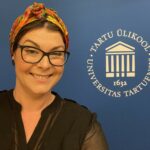Just World Hypothesis: A Cognitive Bias That Makes Us Believe in Clear-cut Good and Evil
Year of production: 2023
Credits: Shutterstock
We like to think of ourselves as rational beings who, when presented with enough information and time for contemplation, can make good choices and judgements. Well, ha-ha, the joke’s on us, because we are not. In this series of short articles about our beautiful and flawed brains – more specifically about cognitive biases – we will look at five common cognitive biases that directly connect to media and information literacies (MILs). The foundation of MILs is knowing oneself and others, and what better time to remind ourselves of our biases than at the brink of elections! So hopefully next time we find ourselves in the middle of a heated online debate about political views or simply as targets of political campaigns, we will know better than to let our brains hijack our judgement through these cognitive shifts.
The Just World Hypothesis is our core belief that the world is fair, that good things happen to good people, and bad things happen to bad people. According to the Just World Hypothesis bias, people generally believe that in any crime or injustice, the victim is to blame for what has happened to them, and, therefore, what happens to them is a deserving “reward.”
In the case of the Just World Hypothesis, despite its scientific-sounding name, there is a strong belief in the existence of some higher power or universal law (such as karma) that ensures a moral balance in actions and consequences. In this sense, it is strongly tied to conspiratorial thinking, as there, too, people seek clear patterns, actors are categorised into evil and righteous, and randomness is re-interpreted as cause-effect relationships.
The Just World Hypothesis ‘theory’ usually makes an appearance whenever there is a high-profile sexual violence or harassment case in the media. Comment sections are full of people who hint at or clearly state that the victims themselves somehow provoke and are in some way ‘deserving’ of what happens to them. Similar statements flood the communicative spaces when poverty, homelessness, sickness, accidents and natural disasters are described.
The electrifying science history
In the world of science, much of the research on the Just World Hypothesis can be traced back to the Milgram experiments, which sought to investigate how people would respond to orders from an authority figure, even if those orders went against their own moral beliefs. To cut a long story short, the participants of the experiments – people like you and me – were required to give electric shocks to others left and right, because they were told to do so, even when the zapped person (who was actually an actor) screamed in pain. Milgram’s research demonstrated that ordinary people could be induced to act in ways that were harmful to others when ordered to do so by an authority figure.
Milgram’s work inspired other scholars like Melvin Lerner to ask how exactly are people capable of doing so much evil and harm to each other. Just because someone orders us? How do we make peace with ourselves? How do we try to justify our own heinous acts? Or come up with explanations for the actions of others? Lerner also conducted a series of experiments in which people were sometimes given electric shock charges and studied the observers of this activity – how do people cope with a situation where they acknowledge someone’s suffering? Often, this is done through victim-blaming – the ‘punished’ ones must have somehow been at fault, foolish and weak, morally flawed.
Bias that helps us cope with hardships
The belief that the world is a fair place and people get what they deserve helps us get by in our everyday life. People find it hard to accept that the world is random, that bad things happen to good people, and that we have no control over many things. That’s why our brains ‘like the taste’ of the Just World Hypothesis, and according to some studies, it is essential for our mental health – it’s like an imaginary contract that guides us through life.
When thinking about where the understanding of a just world comes from, we don’t even have to look beyond fairy tales and Hollywood movies in terms of media texts. The monster always dies in the end, and the hero finds happiness. Or consider the foundational texts – religions are built on the idea that if you do good deeds, you will subsequently receive a deserved reward. Conversely, if you mistreat others day in and day out, you’ll go to hell. Folk theories and proverbs seal this logic, many languages and cultures have their own versions of ‘as you sow, so shall you reap.’ In Estonian, for example, we say: ‘How the village is to the dog, so the dog is to the village’.
Why are we talking about this in the context of media and information literacies? Media and information literacies are the essential skills and forms of knowledge that individuals need to effectively navigate and critically engage with the vast amount of information and media they encounter in today’s digital age. Knowledge about the digital environments, the architecture of platforms, about social norms, etc. is increasingly important. But the foundation of media and information literacy is self-awareness and the ability to analyse others too – understanding how our brains and perceptions work. Because if we don’t, others can use these flaws against us, whether it be to get elected to a position of power or manipulate us into buying stuff we do not need, or make us scared and confused and thus, easily mouldable.





